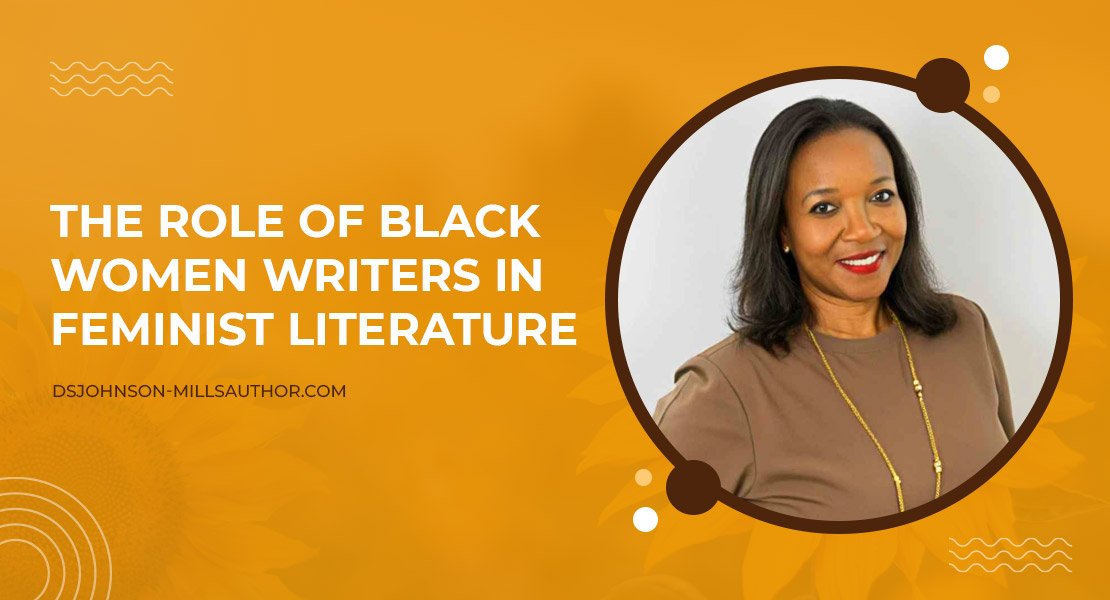Black women writers have played a big role in shaping feminist literature, offering unique perspectives that blend their experiences of race and gender.
Despite facing challenges like limited opportunities and stereotypes, their voices have brought powerful stories and important discussions to the forefront.
This blog post will explore their contributions and the impact they’ve made, helping us understand the world through their eyes.
Historical Context
The early journey of Black women writers in literature was marked by significant obstacles imposed by both racial and gender barriers. In a society dominated by Eurocentric and patriarchal ideals, their contributions were often overlooked or undervalued.
Despite these challenges, these writers persisted, laying the groundwork for future generations.
Phyllis Wheatley stands out as a seminal figure from the 18th century, recognized as the first African American woman to publish a book of poetry. Her work, published in 1773, not only showcased her exceptional literary talent but also challenged the prevailing societal norms of her time.
Wheatley’s accomplishments opened doors for other Black women and demonstrated that their voices were worthy and significant.
Throughout the 19th and early 20th centuries, Black women writers continued to confront systemic racism and sexism head-on.
Figures like Frances E.W. Harper and Zora Neale Hurston expanded on Wheatley’s legacy by integrating themes of racial identity and women’s equality into their narratives.
These trailblazers used their literary platforms to express social critiques, craft culturally rich narratives, and enrich feminist literature with their unique viewpoints.
III. Contributions to Feminist Literature
- Exploration of themes such as empowerment, identity, and resistance
- The unique perspective black women bring to feminist literature
Contributions to Feminist Literature
Black women writers have significantly enriched feminist literature by exploring themes of empowerment, identity, and resistance. Their works often delve into the complexities of intersectionality, highlighting the layered experiences of battling both gender and racial oppression.
These black authors paint vivid narratives that not only reflect personal struggles but also resonate with broader societal issues.
One key theme is empowerment; many black women writers create characters or craft essays that emphasize self-determination and resilience against structural injustices. The concept of reclaiming one’s narrative is crucial, as these authors challenge the stereotypes and misrepresentations prevalent in mainstream media. By doing so, they inspire readers to embrace their strength and agency.
Identity is another central theme, where black women writers examine the multifaceted aspects of cultural and personal identity. Through an engaging narrative style, they confront and dispel myths about black womanhood, offering nuanced portraits of their lives and communities.
Works such as Lorraine Hansberry’s plays or Maya Angelou’s autobiographies underscore the importance of understanding and owning one’s identity amidst societal pressures.
Resistance is artfully woven into their storytelling, serving as a powerful tool for advocating change. Whether through poetry, novels, or essays, these writers confront misogyny and racism, encouraging collective resistance against oppressive systems. Their writings not only reflect current struggles but are also acts of rebellion themselves, urging readers to become catalysts for social reform.
Overall, black women writers bring a distinctive and essential lens to feminist literature, one that enriches and broadens the discourse on feminism with their unique perspectives and powerful stories. Their literary contributions continue to inspire and challenge readers, driving forward the conversation on equality and justice.
Key Figures and Their Works
In examining the pivotal role of Black women in feminist literature, several key figures stand out, each contributing uniquely to the literary landscape.
1) Toni Morrison: Renowned for her profound impact on both African American and feminist literature, Toni Morrison’s works are central to understanding the Black female experience in America.
Her novel Beloved explores themes of motherhood, memory, and the haunting legacy of slavery, challenging readers to confront the deep-seated impact of racial trauma.
Morrison’s narrative style, rich with symbolism and lush prose, invites readers to empathize with characters’ struggles and triumphs, making her a seminal voice in literature.
2) Alice Walker: Best known for her Pulitzer Prize-winning novel The Color Purple, Alice Walker made significant contributions to feminist literature through her exploration of racism and sexism in the Southern United States during the early 20th century.
Her work gave a powerful voice to marginalized characters, particularly Black women, showcasing their resilience and quest for identity amidst oppressive circumstances.
Walker’s literary activism and the concept of “womanism” further extended her influence, emphasizing the importance of solidarity and empowerment.
3) Zora Neale Hurston: A key figure of the Harlem Renaissance, Hurston’s work has had a lasting influence on cultural and literary narratives.
Her novel Their Eyes Were Watching God is celebrated for its rich portrayal of Black womanhood, capturing the complexities of personal freedom, love, and cultural identity.
Hurston’s dedication to preserving African American folklore and dialect in her writing highlights her commitment to authenticity, rendering her stories both vivid and true to life.
4) Other Notable Authors: Maya Angelou, known for her autobiographical series beginning with I Know Why the Caged Bird Sings, brought lyrical strength and vulnerability to her storytelling, addressing themes such as trauma, resilience, and self-acceptance.
Gwendolyn Brooks, the first African American to win a Pulitzer Prize, used poetry to explore social issues and the everyday experiences of African Americans.
Writers like these, alongside others such as Audre Lorde and Octavia Butler, continue to influence feminist literature by providing diverse perspectives that challenge and enrich the understanding of gender and racial dynamics.
Together, these authors forge a powerful literary tradition that not only challenges societal norms and injustices but also celebrates the strength and diversity of Black women’s experiences.
VIII. Contemporary Black Women Writers Continuing the Legacy
- Introduction to emerging voices in feminist literature
- Examples of modern works that reflect ongoing struggles and triumphs
Contemporary Black Women Writers Continuing the Legacy
The legacy of Black women in feminist literature is vibrantly alive through the works of contemporary writers who further the exploration of identity, empowerment, and resistance in the face of ongoing challenges.
These emerging voices not only honor the accomplishments of their predecessors but also navigate new narratives that address current social and cultural dynamics.
1) ChimamandaNgoziAdichie: Authored groundbreaking works such as Americanah and We Should All Be Feminists, Adichie deftly weaves narratives which explore race, identity, and migration through the lens of Black womanhood.
Her works have sparked global conversations on feminism, urging readers to consider the complexities of identity and the power dynamics that influence everyday life.
Adichie’s sharp prose and insightful commentary make her an integral figure in contemporary feminist discourse.
2) Roxane Gay: With a distinctive voice and an unflinching look at societal norms, Roxane Gay’s contributions, including Bad Feminist and Hunger: A Memoir of (My) Body, challenge preconceived notions of feminism and personal narrative.
She merges cultural critique with personal experiences, addressing topics such as body image, trauma, and the intersections of race and gender.
Gay’s writing invites a broader audience to consider the multifaceted nature of being a feminist today.
3) Jesmyn Ward: Known for her evocative storytelling in novels like Sing, Unburied, Sing, Ward captures the racial and socio-economic realities of rural Mississippi.
Her works often explore themes of family, survival, and the lingering ghosts of the past, offering an unvarnished look at the lived experiences of Black communities. Her lyrical storytelling and poignant depictions offer a fresh perspective on resilience and the enduring fight for justice.
4) Brit Bennett: Author of The Mothers and The Vanishing Half, Bennett’s narratives delve into complex issues of identity, secrecy, and the concept of belonging.
With a keen ability to capture the nuances of personal choices and their ripple effects, Bennett reflects the intricacies of race, family, and societal expectations in a modern context.
Her work continues to gain recognition for its depth and relevance in a diverse cultural landscape.
5) D.S. Johnson-Mills: She brings a fresh perspective to feminist literature through her rich storytelling and vibrant characters. Her debut novel “Choosing Me,” centersaround themes of empowerment and personal growth.
She weaves narratives that explore loyalty, love, and the complexities of family dynamics, resonating with readers through relatable experiences. Johnson-Mills’ Caribbean heritage influences her writing, adding depth and authenticity to her stories.
By focusing on personal choices and the power of forgiveness, she creates empowering journeys that encourage readers to embrace their paths and the strength within themselves.
Her contribution to feminist literature is marked by her ability to blend cultural nuances with universal themes, making her stories both engaging and insightful.
Conclusion
In summary, Black women writers have been instrumental in shaping and enriching the landscape of feminist literature. Their works, both past and present, have challenged societal norms, provided nuanced perspectives, and advocated for social change by bringing to light the complexities of race, gender, and identity.
Each narrative, whether highlighting personal struggles or celebrating cultural uniqueness, contributes to a broader understanding of the multifaceted experiences of Black women.
As readers and supporters, it is essential to continue amplifying these voices. By engaging with and promoting their stories, we uphold the vital tradition of Black feminist literature and ensure its ongoing impact on future generations.





